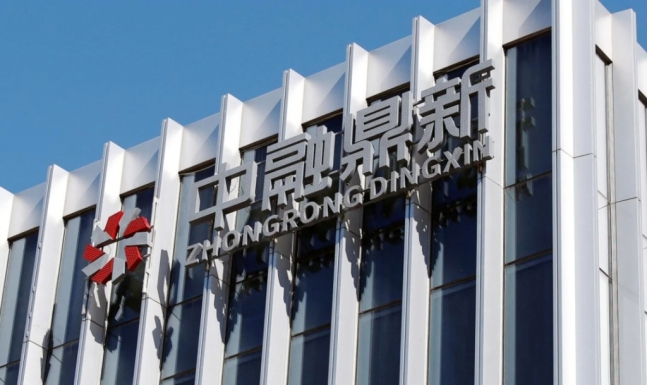
Jungz Group, an asset management company that served as a funding source for the Chinese real estate industry, failed to overcome the liquidity crisis and eventually filed for bankruptcy. It is a company that was mentioned a lot in domestic articles last summer as investors protested. It is a dark result of the Chinese government’s tightening regulations on the real estate market and a rapid economic slowdown.
According to the Financial Times (FT) and Reuters, the first intermediate people’s court in Beijing accepted Jungz Group’s bankruptcy application on the 5th. The court explained that Jungz Group accepted the bankruptcy application because it judged that it lacked the ability to repay its debt due to “serious insolvency.” It has been about three months since it declared insolvency through an “investor’s apology letter” in November last year.
In an apology letter to investors in November last year, the group said it was facing “serious insolvency” as its excess debt amounted to about 48 trillion won. According to the assets review, the group’s total assets amounted to 200 billion yuan, less than half of its maximum debt of 460 billion yuan. Since then, key officials of the group have been arrested and investigated by public security.
The management explained the cause of poor management, especially after the death of the group’s founder in 2021, saying, “The management has been flooded.” The letter apologized to investors, explaining, “The departure of a number of high-ranking executives and key personnel and the death of the founder of Shezkun, who played a pivotal role in group decision-making. The group’s investment products have been bankrupt one after another.”
The Zhongzhi Enterprise Group, which once had assets of 1 trillion yuan, is a representative of China’s non-regulatory so-called “shadow finance” and served as a funding source for Chinese real estate developers. Shadow finance refers to financial institutions and products that are not regulated by the authorities while conducting investment and loans similar to banks such as trust companies. China’s shadow finance is known to amount to 3 trillion dollars (about 3948 trillion won). Shadow finance such as Zhongzhi Enterprise Group invested in real estate, stocks, bonds, and raw materials with funds received from ordinary investors, but it fell into a liquidity crisis as the real estate market stagnated due to the strengthening of regulations by the authorities.

In particular, the Zhongzhi Enterprise Group faced a liquidity crisis in August last year due to the postponement of investment payments by four major asset management companies under the group, including the Zhongzhong Trust. At that time, more than 20 clients ofZhongzhong Trust visited the company’s headquarters to protest for the principal and profits, and police were deployed to prevent the spread of the protest. Chinese trust companies have been selling “Li Chai,” an investment technology product with a return of 6 to 10 percent higher than bank deposits, but the real estate company that invested has gone bankrupt and has been unable to pay the principal even after maturity, let alone profits. The amount of products thatZhongzhihong Trust has postponed its payment amounts to 350 billion yuan (64 trillion won). It is still difficult to estimate the impact ofZhongzhihong’s bankruptcy, but chances are slim that the Chinese authorities will move significantly. “It is quite a big bankruptcy on its own,” Jeerina Zeng, chief credit analyst at the credit site, told the FT. “Compared to the entire Chinese trust companies, the bankruptcy is not that big.” She also predicted that the state will not intervene this time because most of the damage (the bankruptcy of theIn particular, the Zhongzhi Enterprise Group) will be suffered by wealthy individual investors.
“Chinese authorities have gained considerable experience in dealing with previous (bankruptcy) cases such as Hainan Airlines (HNA) Group and Anbang Insurance,” Sean Meng, director of the Chinese investment bank Chanson & Co., told Bloomberg. “We are confident that we can prevent a bigger impact by preparing and controlling (bankruptcy) risks like theIn particular, the Zhongzhi Enterprise Group.”
However, Bloomberg pointed out, “This bankruptcy is one of the largest in China’s history,” adding, “It will put more pressure on already weak consumer and investor sentiment.” Currently, China’s economy is under pressure from a slump in real estate, sluggish domestic demand, and slowing trade, and the CSI300 index, the benchmark index of the Chinese stock market, has fallen for three consecutive years. The news agency also pointed out that “the direct impact on the financial system is limited, but the bankruptcy exposes potential cracks in the (China) trust sector,” and that it will serve as an opportunity to highlight the risks of the rapidly growing global private credit market.
SOPHIA KIM
US ASIA JOURNAL



